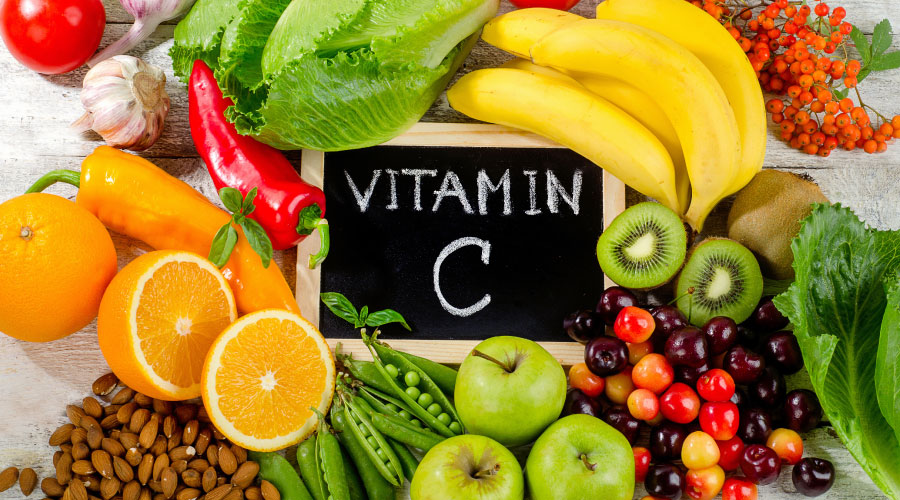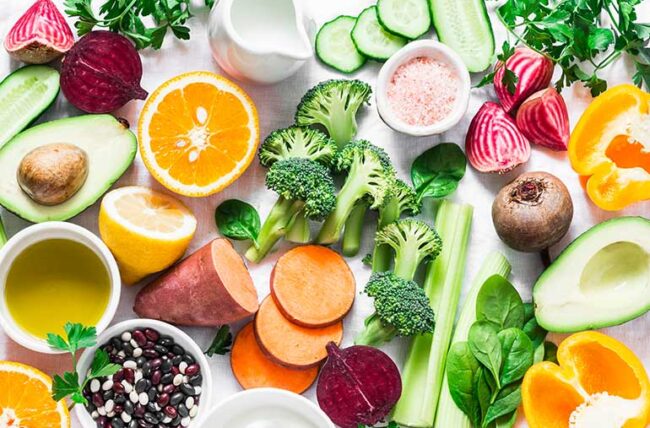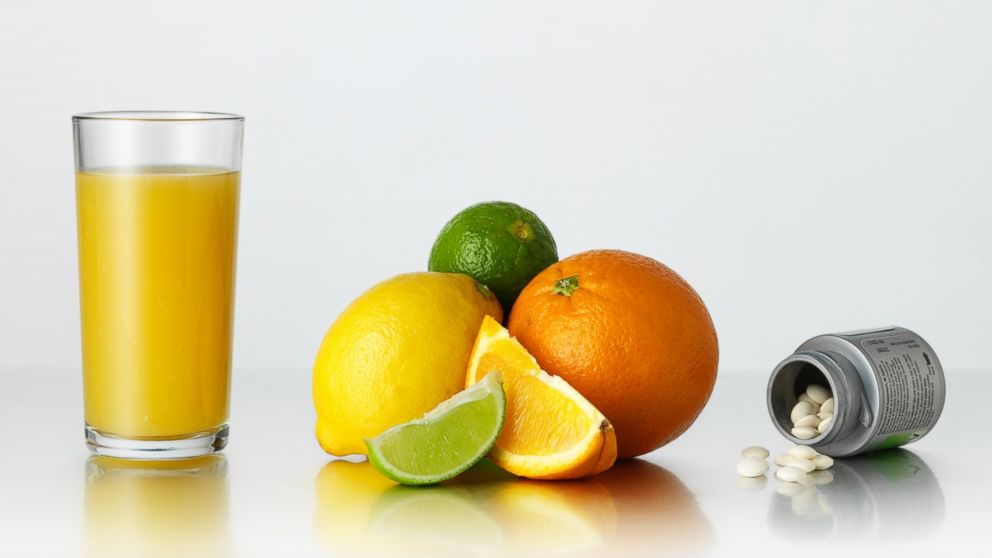Vitamin C Deficiency = Low Level Scurvy
Are you feeling tired and run down? Are your gums bleeding easily? It could be a sign that you’re not getting enough Vitamin C. This essential nutrient is crucial in maintaining overall health, from boosting the immune system to promoting healthy skin and preventing scurvy. In this blog post, we’ll explore the benefits of Vitamin C, discuss foods that are high in this vitamin, address common symptoms of deficiency, and provide tips on how to ensure you’re getting enough Vitamin C in your diet. So let’s discover if you’re genuinely giving your body the needed Vitamin C!
What is Vitamin C?
Vitamin C, found in fruit, also known as ascorbic acid, is a valuable water-soluble vitamin that is vital in maintaining good health. It is an essential nutrient, meaning that our bodies cannot produce it independently, and we need to obtain it from external sources.
One of the amazing key functions of Vitamin C is its role as an antioxidant. Antioxidants clean up toxins and help protect the tissues of our body from cell damage caused by “free radicals.” (Free radicles are unstable molecules). Free radicles are produced during everyday bodily processes such as metabolism or exposure to environmental factors like pollution or UV radiation.
Another important function of Vitamin C is its involvement in collagen synthesis.
- Collagen is the most important protein in the human body. Collagen is found in the tissue, muscles, skin, bones, and tendons. Doctors use collagen in wound healing techniques. It also features cosmetic preparations to enhance the skin. Collagen provides structure and support to many tissues in our body, including skin, bones, tendons, and blood vessels. Without enough Vitamin C, collagen production can be impaired, leading to issues like slow wound healing or weakened blood vessel walls.
What sets Vitamin C apart from other vitamins is its ability to boost the immune system. Vivt C helps stimulate the birth of white blood cells, whose main job is fighting off infections and diseases.
An additional advantage to, Vitamin C is that it also aids in iron absorption from plant-based sources by converting non-heme iron into a form that the body can readily absorb.
Getting enough Vitamin C through your diet or supplements can positively affect your overall health and well-being.
The Benefits of Vitamin C
Vitamin C, also known as ascorbic acid, is a critical nutrient that benefits our overall health. It holds a crucial role in supporting our immune system and protecting against common illnesses like the flu or cold.
One of the most important benefits of Vitamin C is its powerful antioxidant properties.
- Antioxidants help protect all of our cells from damage caused by harmful molecules that are referred to as free radicals. Vitamin C helps reduce oxidative stress and lower the threat of chronic diseases like cancer and heart disease by neutralizing these free radicals.
- Another important benefit of Vitamin C is its role in collagen production. Collagen is a protein that backs skin health by promoting elasticity and preventing wrinkles. Consuming enough Vitamin C can help maintain the youthful appearance of younger skin and improve the overall quality of your skin.
- Additionally, this vitamin has been shown to enhance iron absorption, which is particularly beneficial for individuals with iron deficiency anemia. By increasing iron uptake from plant-based sources, Vitamin C aids in maintaining proper red blood cell function and prevents fatigue.
- Moreover, research suggests sufficient Vitamin C may help your eye health by eliminating or reducing the risk of cataracts and age-related macular degeneration.
To ensure you’re reaping all these fantastic benefits, you must incorporate, into your diet daily, foods rich in Vitamin C. Some excellent sources include raw citrus fruits like oranges and grapefruits, berries such as strawberries and blueberries, kiwi fruit, bell peppers (especially red ones), broccoli, tomatoes, spinach, and papaya.
Vitamin C offers numerous benefits for our overall well-being, including boosting immunity, supporting collagen synthesis, and aiding in iron absorption, among other things.
Consuming foods high in Vitamin C and/or taking a Vitamin C supplement is vital to ensure we get adequate amounts of this essential nutrient.
Never underestimate the power of this humble vitamin!
Foods That Are High in Vitamin C
Foods high in Vitamin C are crucial to maintaining our health and well-being. Incorporating these natural foods into our diet can assist us in meeting the recommended daily intake of this essential vitamin.
As we have mentioned, Citrus fruits, such as oranges, lemons, and grapefruits, are known for their high Vitamin C content. These fruits provide a refreshing burst of flavor and a significant dose of this vital nutrient. Other fruits like strawberries, kiwi, and papaya also contain high levels of Vitamin C.
Small farmer’s markets have properly grown, vitamin and mineral-rich vegetables. They are another excellent source of Vitamin C. Bell peppers, broccoli, Brussels sprouts, and tomatoes are all packed with these immune-boosting vitamins. Adding these colorful veggies to your meals can enhance the taste and nutritional value to your meals.
In addition to fruits and vegetables, certain herbs and spices can contribute to your daily Vitamin C intake. For instance, parsley contains more Vitamin C than most other leafy greens! Including fresh herbs like cilantro or thyme in your cooking can add flavor while boosting this important nutrient.
It’s worth noting that eating these foods raw or lightly cooked will help preserve their Vitamin C content since heat can degrade the vitamin. Therefore, incorporating them into salads or enjoying them as a stir-fry is an excellent way to maximize their benefits since slightly over 100 degrees kills most vitamins.
By regularly including these foods rich in Vitamin C in our diet, we can promote healthy skin and support our immune system function with collagen production. So next time you’re grocery shopping or planning your meals – don’t forget about the power-packed goodness found in these natural sources!
Vitamin C Deficiency
Vitamin C deficiency is a terrible thing that occurs when the body does not get enough of this essential nutrient. Also known as scurvy, it can seriously affect our overall health and well-being and lead to early death.
One common symptom of Vitamin C deficiency is bleeding gums. Have you ever noticed blood in your saliva while brushing or flossing? This could be a sign that your body lacks sufficient Vitamin C levels. Other symptoms may include fatigue, joint pain, a weakened immune system, and slow wound healing.
To ensure you’re getting enough Vitamin C in your diet, it’s important to incorporate foods rich in this nutrient into your meals. Some excellent sources of Vitamin C include:
- oranges and grapefruits
- strawberries
- kiwi fruit
- bell peppers
- broccoli
- leafy greens such as spinach
Suppose you suspect you have a Vitamin C deficiency or experience any of these symptoms regularly. In that case, it’s crucial to read books to educate yourself. If you seek medical advice from a healthcare professional, be sure they have the proper training to diagnose and guide you for treatment options. Or just take Liposomal Vitamin C in sufficient amounts. Catching up from a vitamin deficiency requires much more than the published requirements.
Remember: Prevention is always better than cure! By consuming a varied diet consisting of vitamin-rich foods daily and maintaining good oral hygiene practices like regular brushing and flossing, you can help prevent potential deficiencies, including insufficient intake of essential nutrients like Vitamin C. Stay healthy!
How to Get Enough Vitamin C
Everybody agrees, Getting enough Vitamin C is essential for maintaining good health and overall well-being. But how can you ensure you get an adequate amount of this vital nutrient? Here are a few simple ways to incorporate more Vitamin C into your daily routine.
Make sure to include plenty of raw fruits and vegetables in your diet. Citrus fruits such as organic lemons, oranges, and grapefruits are excellent sources of Vitamin C. Other options include kiwi, strawberries, pineapple, and papaya. Farmer’s market-sourced dark leafy greens like spinach and kale also contain significant amounts of this vitamin.
Another way to boost your intake is by adding peppers to your meals. Bell peppers, particularly the red ones, provide a substantial quantity of Vitamin C. Try incorporating them into stir-fries or salads for an extra surprise of flavor and nutrition.
Supplements can also help ensure you meet your personal daily requirements for Vitamin C. However, it’s always best to consult a holistic healthcare professional (or read a few books and search the ‘net) before starting any new supplement regimen.
Lastly, symptoms, Vitamin C deficiency like bleeding gums should encourage you to make fresh orange juice at home using freshly squeezed oranges is an excellent way to increase your Vitamin C intake naturally without any added sugars or preservatives.
By including these natural raw healthy foods in your diet regularly, you can help maintain optimal levels of this important nutrient to support immune function and prevent Vitamin deficiencies which cause premature aging.
Conclusion:
The health of your body depends on on you getting enough Vitamin C and is crucial for maintaining optimal health. This critical nutrient plays an important role in your overall well-being. It boosts your immune system and promotes healthy skin, and prevents chronic diseases.
To prevent Vitamin C deficiency, incorporate foods rich in this vitamin into your daily diet. Citrus fruits like oranges, grapefruits, strawberries, raw Guava, kiwi, bell peppers, Papaya, and broccoli are excellent sources of Vitamin C. Remember to opt for fresh produce whenever possible to maximize the nutrient content.
If you suspect, you may have a deficiency, be on the lookout for symptoms such as fatigue, weakened immune function, joint pain, and bleeding gums. If these signs persist or worsen over time, most articles will tell you to seek medical advice from a healthcare professional who can accurately diagnose and offer appropriate treatment options. In truth, medical doctors are not trained in using vitamins or minerals. Statistics show that the average age of death for medical doctors is years less than even average couch potatoes.
Note from the nbcnewyork.com: “Eating the right “mix” of fruits and vegetables could help you live longer, according to a new study.
Released by the American Health Association on Monday and conducted by researchers at Harvard T. H. Chan School of Public Health, the new study found that eating two servings of fruit and three servings of vegetables is associated with lower mortality rates.”
Remember that maintaining a balanced diet and regular exercise can help support your body’s natural defenses against illness and disease. By prioritizing adequate intake of essential nutrients like Vitamin C through proper nutrition choices each day, you’re taking an active step towards leading a healthier life.
So why wait? Start incorporating more Vitamin C-rich foods into your meals today and enjoy this mighty nutrient’s numerous benefits!




